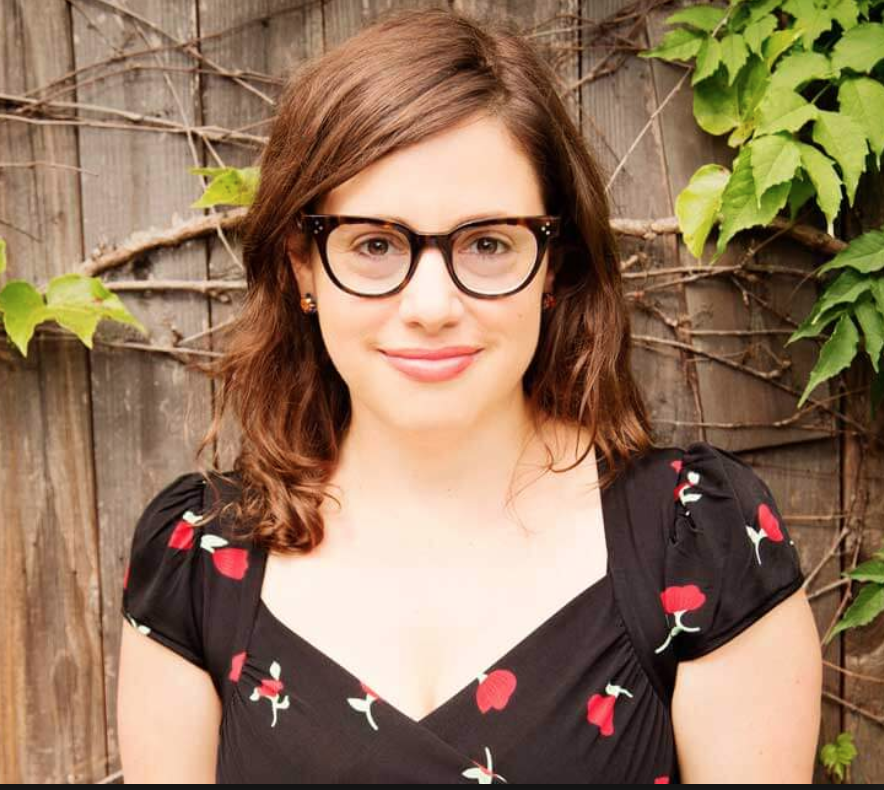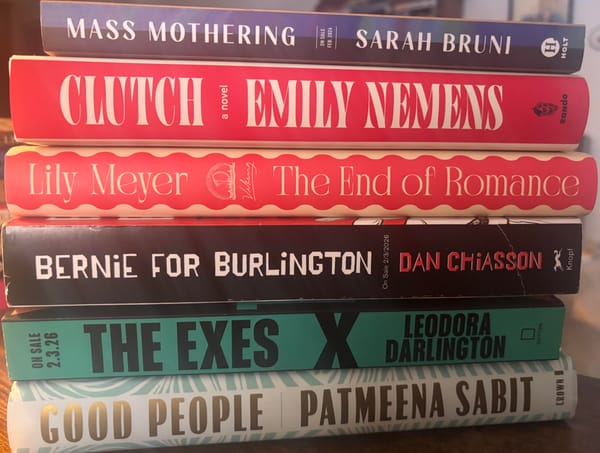The Maris Review, vol 64

In which I discuss some extra compelling nonfiction.
What I read this week
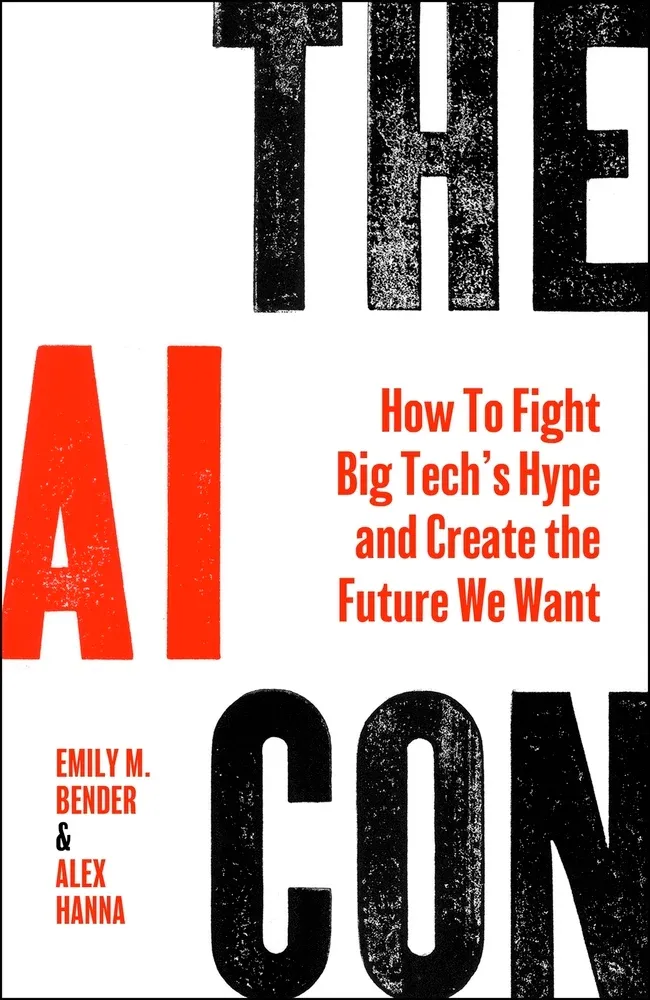
The AI Con: How to Fight Big Tech's Hype and Create the Future We Want by Emily M. Bender and Alex Hanna
Finally, an explainer-y book about AI written in plain English. I swear, I think so much AI hype is happening because boosters use big fancy words that don't actually mean anything, distracting from the lack of substance in their claims by confusing us with linguistic incoherence.
AI is being sold to us as miracle cure, but Emily M. Bender and Alex Hanna ask us to use our very real human brains to do some critical thinking. We've got people out here complaining about the male loneliness epidemic, and then we've got tech bros and other titans of industry consistently devaluing human interaction by telling us that machines can do our jobs. Instead of asking if AI can solve all of the societal problems we're constantly told it will, why don't we focus on the harms it's already doing: "threatening stable careers and replacing them with gig work, slashing personnel in government, cheapening our social services, and degrading creativity." That's not to mention the damage AI does to our environment by creating huge needs for energy.
Maybe it's because I'm coming out the other side of book promotion, but I can't help compare this idea of AI as an imminently coming panacea (it's always just in the near future, but we never quite get there) with my experience as a kid who thought the cure for Type 1 diabetes might come overnight. If I simply got one injection of some magical cure, I'd be able to go back to eating Count Chocula every morning and get on with my life. So much of my book is about accepting how progress comes in stages, and is a product of a vast array of people and systems working together. While I was dreaming of a cure pharma companies were busy raising prices of insulin more than 1000 percent between 1999 and 2019, so that a great deal of Americans couldn't afford the drug they needed to survive everyday. Before we start thinking about cures, let's see what we can do to help the people who are needlessly suffering right now.
Bender and Hanna repeatedly remind us that the people most bullish about pushing AI have a financial stake in evangelizing it (the list of boosters is a who's who of some of the most cretin-ish right wing business bros, from Elon Musk to Marc Andreessen). Why the fuck would we trust them? "These technologies," Bender and Hanna write, "serve as a means of centralizing data, amassing power, and generating profit, rather than providing technology that is socially beneficial."
The book closes with more than 50 pages of notes: unlike LLMs that are trained on god knows which texts procured by whom, Bender and Hanna underscore the importance of being transparent about their sources and crediting others for their ideas. I expect I'll be referring back to it a bunch in the coming years.
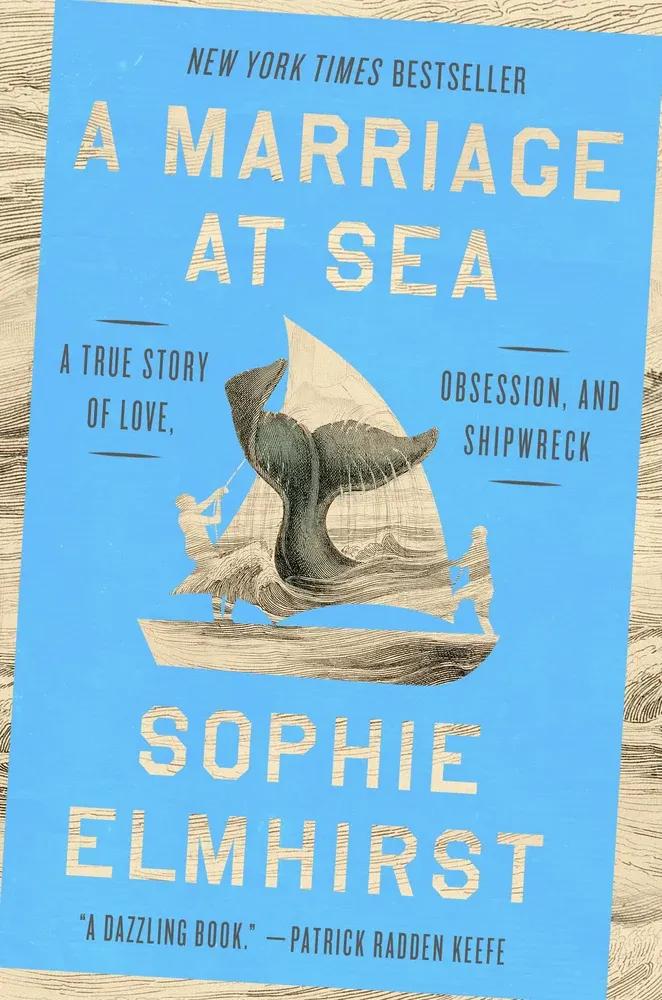
A Marriage at Sea: A True Story of Love, Obsession, and Shipwreck by Sophie Elmhirst
This book is bonkers, one of those true stories that contains so many metaphorical implications that you might be tempted to think it's fiction.
What makes a couple want to live at sea? When British couple Maurice and Maralyn Bailey set sail on their new boat, the Auralyn, in 1973, they're newly married and headed for the wilds of New Zealand. Marilyn is looking for adventure; Maurice, the proverbial wet blanket (I'm not sorry), was more likely looking for reclusion. They're in the middle of the Pacific Ocean when the Auralyn is struck by a sperm whale and sinks. They spend the next 118 days in a small raft (with a dinghy attached) together, hoping to be rescued.
Sophie Elmhirst's account of the couple's misfortunes is fast-paced and well done, pulling on the couple's own writing (both are deceased) as well as ancillary interviews. We don't linger too long with them on that raft; just long enough to ponder the details of daily living when the worst has happened. We learn what they ate and how they procured it (they became vegetarians upon rescue, and for good reason). We learn how they spend their time at sea, the games they played, the physical and mental tasks that helped to fortify them. On the brink of starving to death Maralyn would envision elaborate meals, many of which she recorded in her diaries. We see how Maralyn is simply better at surviving than her husband, and we see how she pushed him to survive alongside her. Together they imagine how their next boat will be constructed, if and when they're rescued.
So much of this book is about marriage and what it means, but I think I'm more interested in the question of what happens when two people – any two people – become more intimate than anyone was ever meant to be. The metaphor that marriage is like being stuck in a lifeboat together in the middle of the Pacific Ocean makes sense, sure, but I suppose I'm simply more optimistic about love relationships than that. Claustrophobia is not a regular part of a healthy marriage! Or it shouldn't be!
Most ironically, although the Baileys set off on their sea journey to escape much of regular society, as shipwreck survivors they became celebrities. When they (spoiler alert) returned to civilization they were forced to do what amounted to an extended press tour (the money from their efforts would go toward building a new boat, they had lost their life savings after all). They got used to smiling for the camera and being asked to relive their scariest moments time and time again. After a while, it seemed as though they (or at least Maurice) might have actually wished to go back.
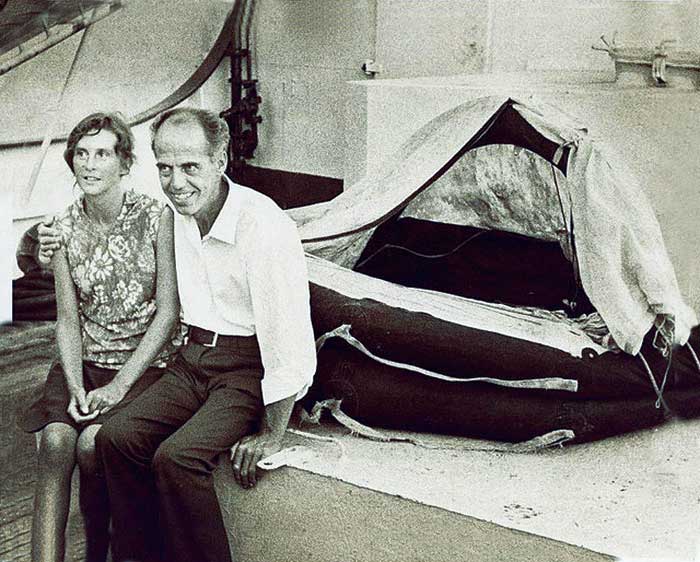
New releases, 7/22

Bonding by Mariel Franklin
You Have a New Memory by Aiden Arata
Pan by Michael Clune
Necessary Fiction by Eloghosa Osunde
First Time, Long Time by Amy Silverberg
Maggie, Or, a Man and a Woman Walk Into a Bar by Katie Yee
